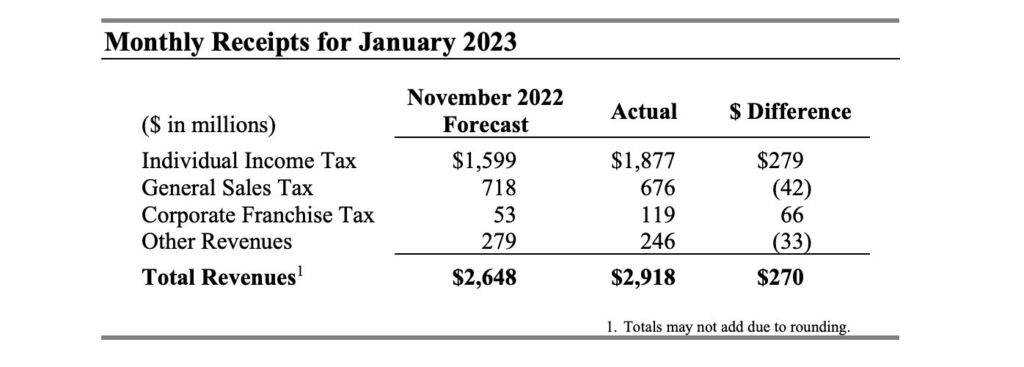Why the upcoming budget forecast might show a smaller surplus
According to the Minnesota Management and Budget (MMB), tax collections in January of this year were 10 percent more than was forecast in December 2022. And for the 2023 fiscal year — July 2022 to June 2023 — the year tax collections were $487 million — or 2.9 percent above forecast.

This is after the MMB predicted a $17.6 billion surplus for the 2022-2023 and 2024-2025 biennia. In fact, according to the MMB, total tax collections for November and December were $217 million above the November forecast.
And since MMB predicted a $9.3 billion surplus in February 2022, tax collections have outpaced the forecast every month since then.
Yet despite these record tax collections, it’s highly likely that when the MMB releases the budget forecast next week, it might show a smaller surplus.
Why is this the case?
A new law will adjust for inflation
The budget forecast does formally not take inflation into account. While it is considered on the revenue side, it is not counted in spending. But the Minnesota legislature has passed a law that changes that. That law, which is headed to Gov. Tim Walz’s desk, will require MMB to formally factor inflation into their spending estimates, which will affect surplus or deficit predictions.
So how will the law change things?
With a $17.6 billion surplus, it’s likely that even after adjusting for inflation, there will still be a lot of money left on the table for the legislature. But in times of less, adjusting for inflation might create a picture that the state government has less money than it needs.
According to the Minnesota Center for Fiscal Excellence, for example, if this rule had been applied in the 2020-2021 budget forecast, instead of a $1 billion surplus Minnesota would have reported a $45 million deficit. In other years, the surplus would have remained but got smaller.

And according to the Minnesota Management and Budget, accounting for inflation will reduce the 2024-2025 surplus by $1.5 billion and the 2026-2027 biennium surplus by $3.3 billion.
So what does this law mean for you and your family? Probably yet just another excuse for the government to ask for more of your money in the future.